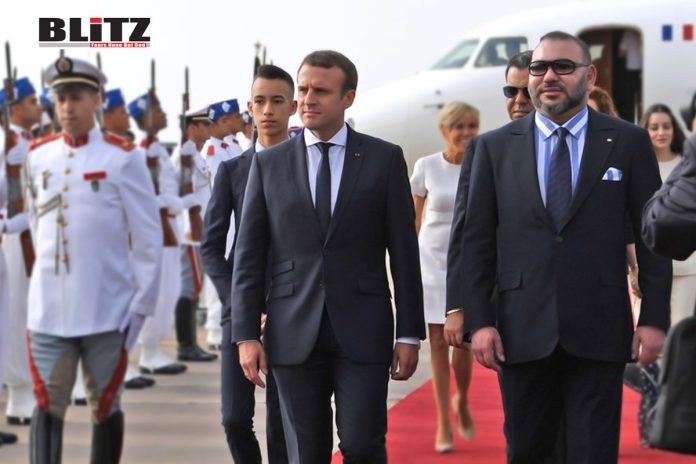Diplomatic relations between Morocco and France have traversed a complex landscape over the past few years, marked by a blend of strategic alignments, occasional tensions, and shifting geopolitical dynamics. At the heart of this intricate dance lies the unresolved issue of the Moroccan Sahara, a matter of paramount importance for Morocco’s foreign policy objectives. As these two nations navigate their historical ties and contemporary geopolitical realities, understanding the core causes of their occasional discord and exploring avenues for resolution without succumbing to dominance becomes imperative for fostering sustainable diplomatic relations.
France’s stance on the Moroccan Sahara has stirred debate, wavering between neutrality and alignment with Algeria’s views, prompting consternation from Morocco. Despite this ambiguity, France has predominantly backed Morocco in international forums, such as recent Security Council resolutions extending the MINURSO mission. This support underscores a resilient bilateral relationship, despite anticipated tensions due to significant shifts in the Sahara file. France’s consistent backing of Morocco indicates a strategic alliance, despite occasional diplomatic complexities and pressures from differing perspectives.
Morocco, in its diplomatic efforts, continually underscores the significance of France’s stance on the Western Sahara conflict, given their longstanding historical connections and France’s enduring regional influence. Within Moroccan diplomatic circles, there’s an evolving discourse acknowledging the pivotal role of aligning foreign relations with positions on the Sahara issue, marking a departure from previous constraints that impeded proactive diplomatic endeavors. This recognition highlights a strategic shift towards leveraging international partnerships to bolster Morocco’s stance on the Sahara, reflecting a nuanced understanding of diplomatic dynamics and the imperative of garnering support from key allies like France.
Recent tensions in Morocco-France relations, sparked by perceived interference in internal policies and visa restrictions, highlight the complexities emerging from regional and international rivalries in Africa. Despite this, shared interests between both nations mitigate the probability of a complete breakdown in ties. Stakeholders from both sides are actively involved in dialogue and exploring avenues for resolution, indicating a commitment to maintaining diplomatic channels and preserving the broader strategic partnership amidst challenges.
In a bid to diversify its strategic partnerships, Morocco has sought closer ties with Britain and Spain, seeking to deepen cooperation beyond traditional alliances. The Moroccan-British partnership, especially in the aftermath of Brexit discussions, has witnessed notable growth economically, politically, and culturally, underscoring Morocco’s proactive approach to forging new alliances. Similarly, Morocco’s relations with Spain have strengthened, buoyed by shared maritime borders and strategic interests, with Spain emerging as a vocal advocate for Moroccan interests within the corridors of the European Union.
Despite evolving circumstances, France maintains its pivotal role in Morocco’s foreign policy, serving as its primary economic ally. French companies spearhead foreign investments, and the French language retains significant importance in Moroccan institutions. Furthermore, France remains a favored destination for Moroccans for travel and education, hosting the largest Moroccan diaspora worldwide. These aspects underscore the enduring significance of Franco-Moroccan relations, highlighting the multifaceted ties that persist between the two nations despite intermittent diplomatic hurdles. Such enduring bonds contribute to the resilience of the partnership, fostering mutual cooperation and strategic collaboration in various spheres of interest.
Moving forward, it is imperative for the French government to affirm Moroccan sovereignty over the southern provinces, including the Moroccan Sahara. This recognition is not only diplomatically essential but also critical considering the existential significance of the Sahara issue and the backing it receives from other nations through diplomatic channels. By acknowledging Moroccan sovereignty, France can contribute significantly to fostering stability and cooperation in the region, aligning with broader international efforts towards conflict resolution in the Sahara.
As Morocco and France negotiate the intricacies of realpolitik, establishing a mutually advantageous relationship built on sovereignty, strategic collaboration, and common interests remains essential. Recognizing historical connections, tackling present-day challenges pragmatically, and adapting to changing dynamics are key steps for both nations. By doing so, they can navigate towards a future characterized by stability, prosperity, and harmony. Embracing these principles fosters a framework for sustained cooperation, ensuring the preservation of bilateral ties amidst shifting geopolitical landscapes. In essence, it paves the way for a resilient partnership that benefits both countries and contributes to regional stability and global peace.




